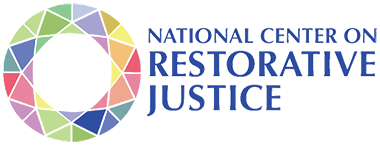Get to know a little about Monique Appel, one of the core team members of the National Center on Restorative Justice!
What is your work at the National Center on Restorative Justice?
I’m the Assistant Director at NCORJ’s partner institution, The Center for Restorative. One of my main responsibilities is grant management and administration, essentially a lot of the backend work that supports our National Restorative Coaching Program and scholarships for certificates in Restorative Justice Facilitation and Leadership at the University of San Diego. I also work to spotlight individuals in the coaching and certificate programs by sharing their stories and their unique RJ practices.
What has been the most rewarding experience you’ve had working in restorative justice so far?
The most rewarding experience I’ve had in restorative justice thus far has been my restorative justice related research. I utilized circle practices to engage in race and identity development conversations with white faculty. Not only did we talk about ways to address race in the classroom, in true restorative justice fashion, actionable change was also a result. Faculty made changes to curriculum such as, adding identity statements to syllabi, including more diverse authors and researchers, and incorporating more inclusive class practices.
What do you think is the biggest misconception about restorative justice, and how do you address it in your work?
It’s not necessarily a misconception but I don’t think people realize how important active listening is to the restorative justice process. It requires the utmost presence and intentionality which are not skills that come easily to everyone (myself included). Luckily, these are skills that we can practice and improve upon in our everyday lives.
How would you describe restorative justice in five words or less?
A process of connection and healing
When you’re not at work, what is something you like to do that brings you joy and fills your cup?
I love hiking, camping and being outdoors. I also love dancing at concerts and listening to live music.
If you could instantly learn a new skill, what skill would you choose and how would you use it?
I would love to learn how to sew and make my own clothes.
Monique Appel is the Assistant Director at NCORJ’s partner institution, The Center for Restorative at the University of San Diego. Monique provides strategic direction and leadership to improve the Center’s internal systems with an eye toward future needs, opportunities, and budget realities. She has an MA in Higher Education Leadership from the University of San Diego. Monique has experience creating and facilitating DEI-focused RJ circles. She believes restorative justice can build capacity for difficult conversations.

